
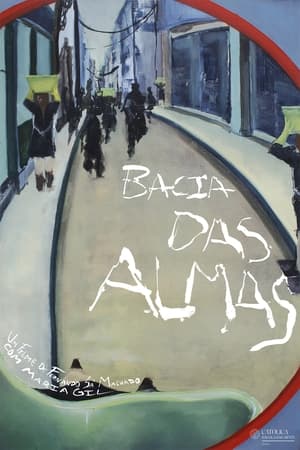
Basin of Souls(2024)
Rua de Santa Catarina, a street that was formerly home to dozens of local businesses and hundreds of Porto residents, now sees a crowd of tourists attracted by the cheap, disposable amenities that are popping up everywhere at once. Gentrification has decontextualized Portuguese culture, rendering the landscape uncanny. The Basin Woman, a symbol of the female workers of the historic Bolhão Market, is chased down by seagulls in the midst of this transcendent chaos.

Movie: Basin of Souls

Bacia das Almas
HomePage
Overview
Rua de Santa Catarina, a street that was formerly home to dozens of local businesses and hundreds of Porto residents, now sees a crowd of tourists attracted by the cheap, disposable amenities that are popping up everywhere at once. Gentrification has decontextualized Portuguese culture, rendering the landscape uncanny. The Basin Woman, a symbol of the female workers of the historic Bolhão Market, is chased down by seagulls in the midst of this transcendent chaos.
Release Date
2024-10-24
Average
0
Rating:
0.0 startsTagline
Genres
Languages:
Keywords
Similar Movies
 0.0
0.0El apagón: Aquí vive gente(es)
“El Apagón: Aquí Vive Gente” is a documentary directed by Bad Bunny and Blanca Graulau. This 23-minute film explores the socio-economic challenges in Puerto Rico, focusing on the effects of power outages and gentrification driven by the real estate and energy sectors. Through visuals and personal stories, the documentary highlights the experiences of Puerto Rican communities facing these issues.
 0.0
0.0Só Por Acaso(pt)
A bad luck that should never have happened, sends Rodrigo into a coma that lasts five years. And when he wakes up, after so long haunted by the image of the woman who shot him at close range, he realizes that life has not stopped waiting for him, without realizing that everyone is lying to him. And that your best friend is getting ready to get you into trouble again.
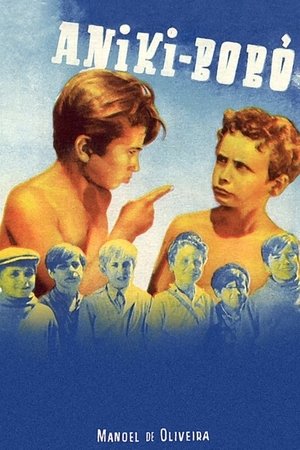 7.6
7.6Aniki-Bóbó(pt)
Two schoolboys, Carlitos and Eduardo, fight for the affection of a girl, Teresinha.
 7.2
7.2The Lion from Estrela(pt)
Anastácio lives in Lisbon and is fanatic for Sporting CP, one of the city's football teams. When the team travels to face Porto, he follows it with the family, staying in house of his friend, Mr. Barata, pretending to be rich.
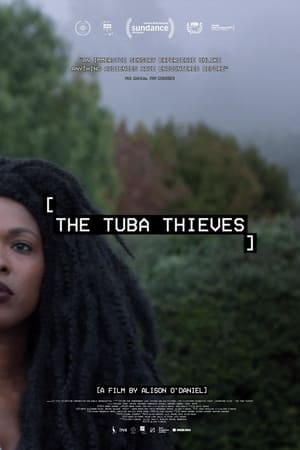 8.0
8.0The Tuba Thieves(en)
A spate of robberies in Southern California schools had an oddly specific target: tubas. In this work of creative nonfiction, d/Deaf first-time feature director Alison O’Daniel presents the impact of these crimes from an unexpected angle. The film unfolds mimicking a game of telephone, where sound’s feeble transmissibility is proven as the story bends and weaves to human interpretation and miscommunication. The result is a stunning contribution to cinematic language. O’Daniel has developed a syntax of deafness that offers a complex, overlaid, surprising new texture, which offers a dimensional experience of deafness and reorients the audience auditorily in an unfamiliar and exhilarating way.
 4.3
4.3What's New About Love?(pt)
Six friends meet every evening in a basement to make music. During the daytime, however, there are no rehearsals for what life brings us. Each endeavour leaves its mark. Rita left Ricardo, Rafael found her, but she still feels lost. Eduardo thought he no longer liked Maria, but after what he has done he cannot turn the clock back. João lacks the courage to breakup with his girlfriend and takes refuge in the song he is writing for Inês. Marco struggles to get another young man’s love, but he is under no illusions. Samuel believes in everlasting love but something is wrong because his friends haven’t heard from him for sometime. Inês, attempting to feel safe, likes to experiment and she's waiting to see how things go with João. With all this going on, how could the band not be falling apart...?
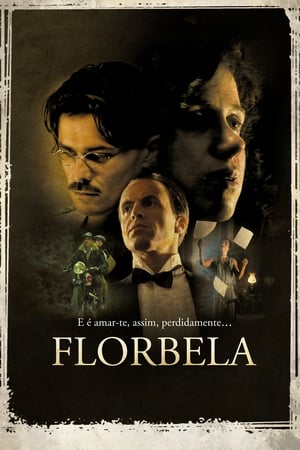 5.0
5.0Florbela(pt)
Shaken by a divorce in the 1920s, Portuguese poetess Florbela Espanca uses her writing to deal with her tumultuous relationship with men, eroticism and love.
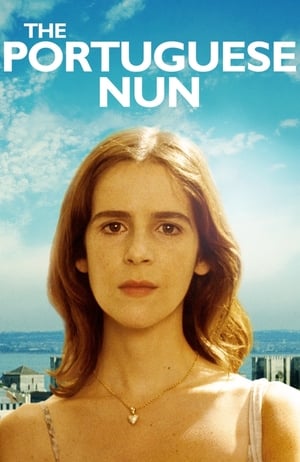 6.3
6.3The Portuguese Nun(pt)
A young French actress in Lisbon to shoot a movie is intrigued by a nun she sees kneeling in the chapel where she is filming.
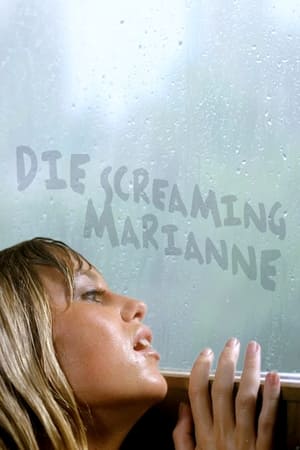 6.0
6.0Die Screaming Marianne(en)
After their parents divorce, one daughter lives with her mother in England while the other lives with her father in Portugal. After the untimely death of her mother, the one daughter stands to inherit a large sum of money and also a number of documents containing information that will incriminate her father, who was a crooked judge. While her father wants the documents, her sister wants the money and they will each stop at nothing, even murder, to get what they want.
 6.6
6.6Cobweb(ko)
In the 1970s, Director Kim is obsessed by the desire to re-shoot the ending of his completed film Cobweb, but chaos and turmoil grip the set with interference from the censorship authorities, and the complaints of actors and producers who can't understand the re-written ending. Will Kim be able to find a way through this chaos to fulfill his artistic ambitions and complete his masterpiece?
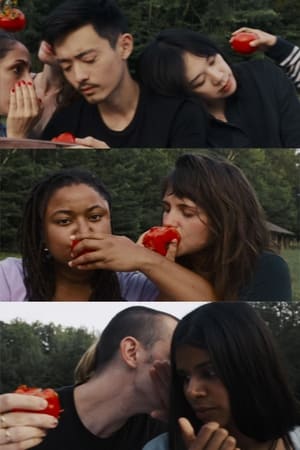 0.0
0.0Tomatoes(en)
Across the installation's multiple channels, the camera circles a group of artists as they sit together in a field eating, licking, and squeezing ripe tomatoes. Throughout the ever-changing scene, kisses, whispers, and caresses are shared with a casual, gentle intimacy that reflects interconnectivity and abundance. These queer and desirous exchanges constitute a portrait of collectivity wherein individuals come together as distinct parts of a whole.
 0.0
0.0Sky to Soil(en)
A young couple with conflicting desires for intimacy attempt to navigate the emotional complexities of what should be a joyful one-year anniversary.
 7.2
7.2Where to Invade Next(en)
To understand firsthand what the United States of America can learn from other nations, Michael Moore playfully “invades” some to see what they have to offer.
 6.1
6.1Prelude: Dog Star Man(en)
A creation myth realized in light, patterns, images superimposed, rapid cutting, and silence. A black screen, then streaks of light, then an explosion of color and squiggles and happenstance. Next, images of small circles emerge then of the Sun. Images of our Earth appear, woods, a part of a body, a nude woman perhaps giving birth. Imagery evokes movement across time. Part of the Dog Star Man series of experimental films.
 0.0
0.0Rainbow Girls(en)
As San Francisco’s tech boom gentrifies their city, three young black trans women decide to take matters into their own hands, staging an audacious heist targeting the city’s most exclusive luxury brands.
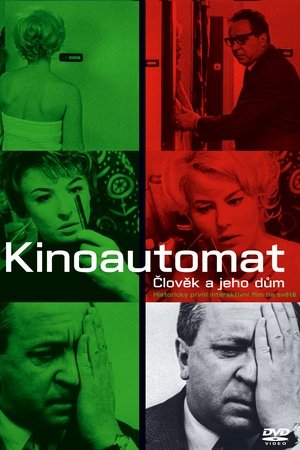 7.3
7.3Kinoautomat(cs)
Kinoautomat was the world's first interactive movie, conceived by Radúz Činčera for the Czechoslovak Pavilion at Expo '67 in Montreal. At nine points during the film the action stops, and a moderator appears on stage to ask the audience to choose between two scenes; following an audience vote, the chosen scene is played.
 0.0
0.0Psalms(en)
A personal experimental exploration of the book of Psalms in the Holy Bible
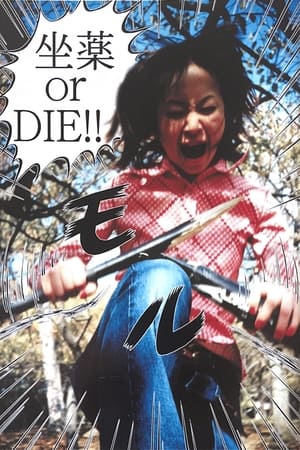 10.0
10.0Guinea(ja)
Yukari Nishihara, 25, earns her living as an art model and aspires to become an actress. One day, while she was out, she saw “a man's face about to jump off the roof of a building”, and since then she has been suffering from a peculiar constitution: she sees a suicide while on her period, faints, and develops a fever. The goddess of love does not smile on Yukari, who is unable to become a sweet girl with a nice boyfriend. The only things that can save Yukari now are her best friend Hana, who has a keen intuition, and a suppository that can break a fever in one shot. On the day of an important audition, Yukari has decided that this is her last chance. However, Yukari realizes that she has forgotten her antipyretic suppositories, and her eyes meet those of another soon-to-be suicide victim. She is in a desperate situation. What does Yukari do?
 7.4
7.4Another Day of Life(en)
In 1975, Ryszard Kapuściński, a veteran Polish journalist, embarked on a seemingly suicidal road trip into the heart of the Angola's civil war. There, he witnessed once again the dirty reality of war and discovered a sense of helplessness previously unknown to him. Angola changed him forever: it was a reporter who left Poland, but it was a writer who returned…

